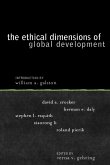This volume for the first time brings the scholarly discipline of comparative religious ethics into constructive collaboration with the community of interreligious dialogue. Its design is premised on two important insights. First, interreligious dialogue offers to comparative religious ethics a new, more persuasive rationale, agenda of issues, and practical orientation. Second, comparative religious ethics offers to interreligious dialogue an arsenal of critical tools and methods which will enhance the sophistication of its practical work. In this way, both theory (a dominant concern and strength of comparative religious ethics) and praxis (a dominant concern and strength of interreligious moral dialogue) are joined together in mutual effort, each contributing to the benefit of the other.The volume's contributors share this vision of collaboration, drawing explicitly from both communities of discourse in a manner that crosses disciplinary and professional boundaries to deal creatively and constructively with important methodological and global moral issue. Although theory and practice cannot easily be separated in such a collaborative project, for the purpose of clarity, the volume is divided into two main parts. The first specifically engages questions of method, theory, and the social role of the public intellectual; the second, on substantive moral themes and issues, many of which were raised at the 1993 Parliament. Taken together, the volume's essays articulate and illustrate new ways of approaching contemporary moral concerns cross-culturally yet with a rigor appropriate to our complex and pluralistic world.
Hinweis: Dieser Artikel kann nur an eine deutsche Lieferadresse ausgeliefert werden.
Hinweis: Dieser Artikel kann nur an eine deutsche Lieferadresse ausgeliefert werden.








